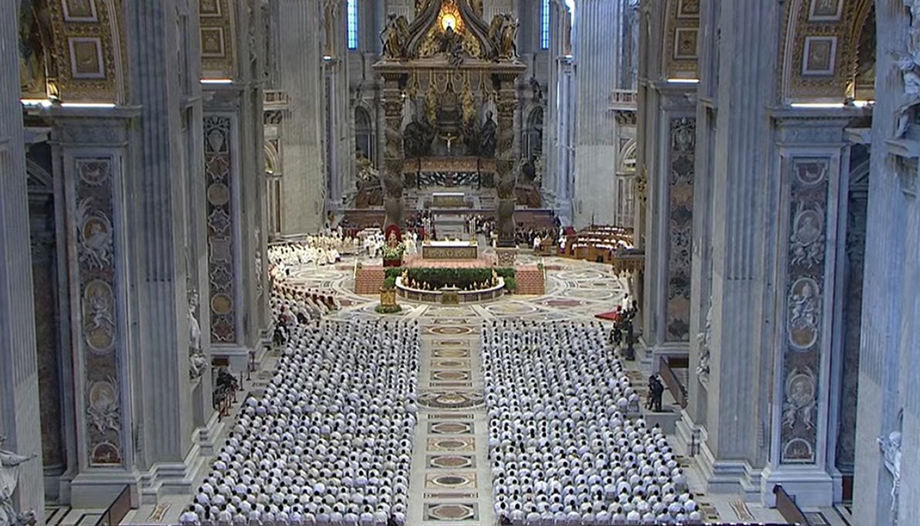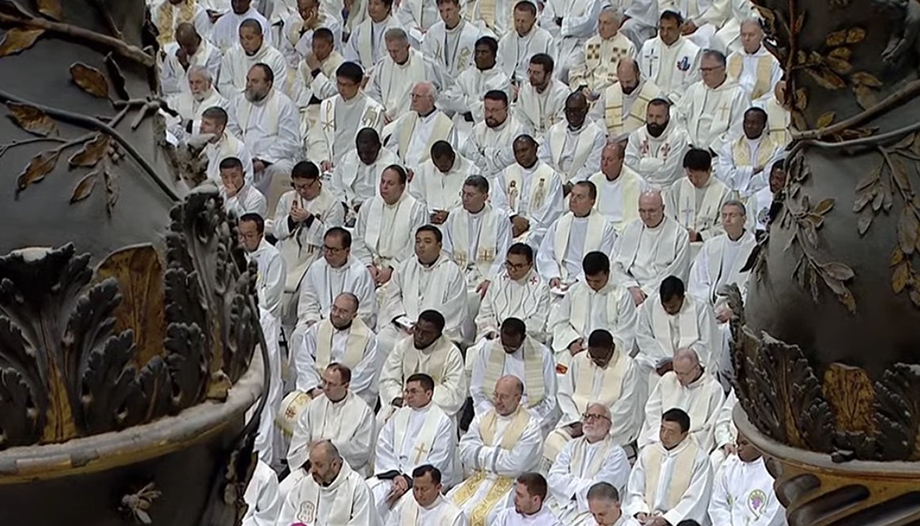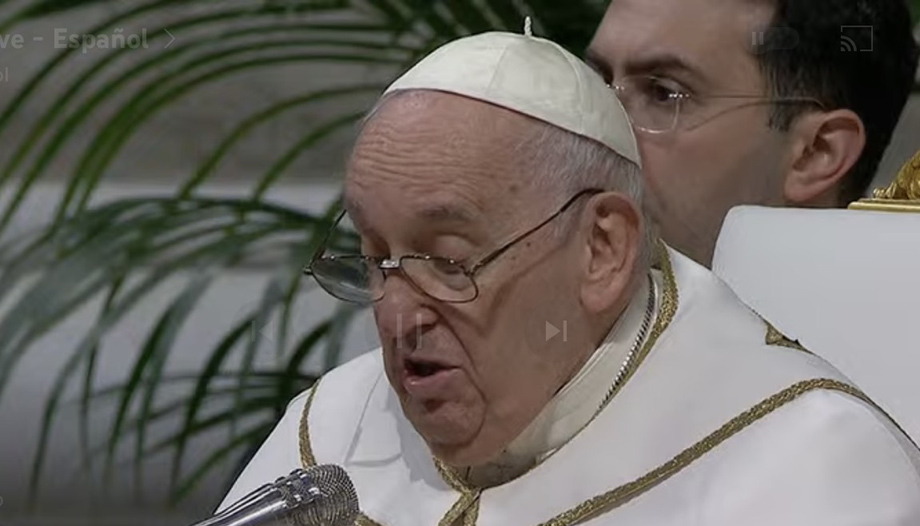The third person of the Blessed Trinity was the focus of Pope Francis' homily at the Chrism Mass, celebrated in St. Peter's Basilica next to the Vatican Curia and the clergy of the diocese of Rome.
In this Mass, in which the priests renew their priestly promises and the holy oils are blessed, the Pope wished to dwell on the anointing of the priestly priest. Holy Spirit and the figure of the third person of the Trinity.
"Without the Spirit of the Lord there is no Christian life and, without his anointing, there is no holiness" began the Holy Father, who reminded priests that the Holy Spirit is "the origin of our ministry".
In fact, the Pope stressed, "without him, the Church would not be the living Bride of Christ either, but at most a religious organization".

"Anointed by Him, we are called to immerse ourselves in Him.
The primary task of priests, "chosen, anointed by the Lord" is, in the Pope's words, "to take care of the anointing. "The Lord has not only chosen us and called us from here and there, but has poured into us the anointing of his Spirit, the same Spirit that descended on the Apostles," the Pope emphasized.
Looking at these first followers of Christ, the Pontiff underlined the radical change that the second anointing, the second call, brought about: "Jesus chose them and at his call they left their boats, their nets and their homes.
The anointing of the Word changed their lives. With enthusiasm they followed the Master and began to preach" but when the Passion came, their cowardice, their spiritual ignorance, as the Pope has defined: "The 'I do not know that man' that Peter pronounced in the courtyard of the high priest after the Last Supper, is not only an impulsive defense, but a confession of spiritual ignorance".
"For us too there was a first anointing, which began with a call of love that captivated our hearts," the Holy Father continued, "then, according to God's timing, the paschal stage arrives for each of us, which marks the moment of truth.
Not to be "state clergymen".
From this stage of adversity, of crisis, which always comes, as Francis reminded us, "one can emerge badly, slipping into a certain mediocrity, sliding wearily towards a "normality" in which three dangerous temptations are insinuated: that of the "normality", the "normality" in which three dangerous temptations insinuate themselves: that of the commitmentthe one whereby one is satisfied with what one can do; the one of the substitutesThe one by which one tries to "fill oneself" with something different from our anointing; the one of the discouragementThe result is that, dissatisfied, one moves on by sheer inertia.. And here lies the great risk: while appearances remain intact, we withdraw into ourselves and move on unmotivated". The Pope has defined this danger as that of becoming state clergymeninstead of village shepherds.
Reminding priests who are going through moments of crisis, the Pope stressed that the passage to priestly maturity passes through the Holy Spirit: "when He becomes the protagonist of our life, everything changes perspective, even disappointments and bitterness, because it is no longer a matter of getting better by composing something, but of giving ourselves, without reserve. For all these reasons, Francis encouraged priests to "invoke the Spirit not as an occasional practice, but as a daily encouragement. I, anointed by Him, am called to immerse myself in Him".
Do not tarnish the Church with polarizations
The Pope also referred to the Holy Spirit as the generator of "harmony that unites everything". "Think of a presbyterate that is not united, it does not work," the Pope pointed out, "He raises up the diversity of charisms and recomposes it in unity [...] Let us be careful, please, not to sully the anointing of the Spirit and the mantle of Mother Church with disunity, with polarizations, with any lack of charity and communion."

Friendly priests
The Pope ended his homily with a call to "guard harmony, beginning not with others, but with oneself; asking ourselves: do my words, my comments, what I say and write have the stamp of the Spirit or that of the world? I am thinking also of the kindness of the priest: if people find even in us dissatisfied people, discontented bachelors, who criticize and point fingers, where will they discover harmony?"
The rite of the Chrism Mass continued its usual course with two singular moments: the renewal of priestly promises and the blessing of the holy oils.
The next big celebration of these days will be this afternoon with the celebration of Holy Thursday, the beginning of the Easter Triduum.








